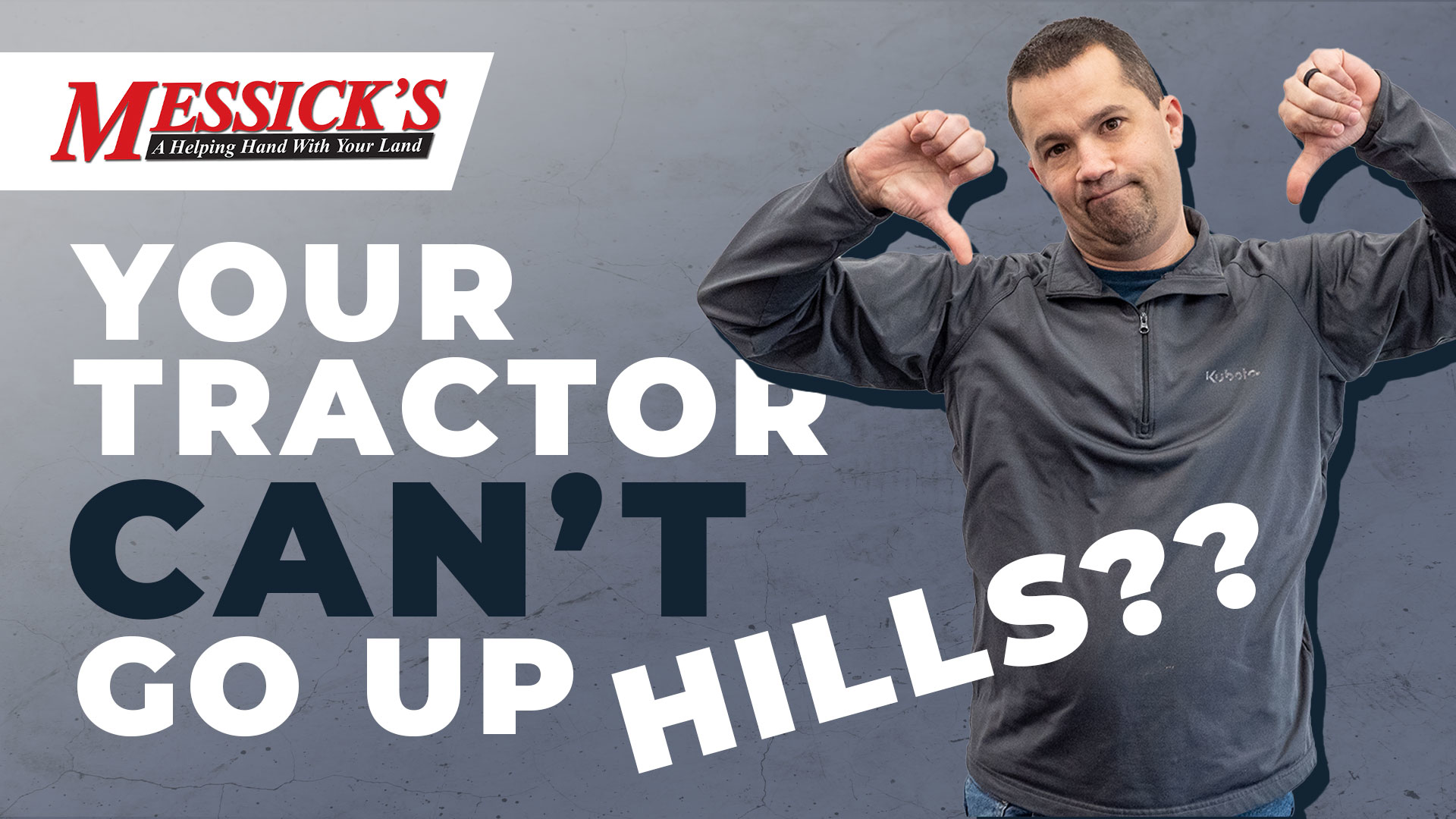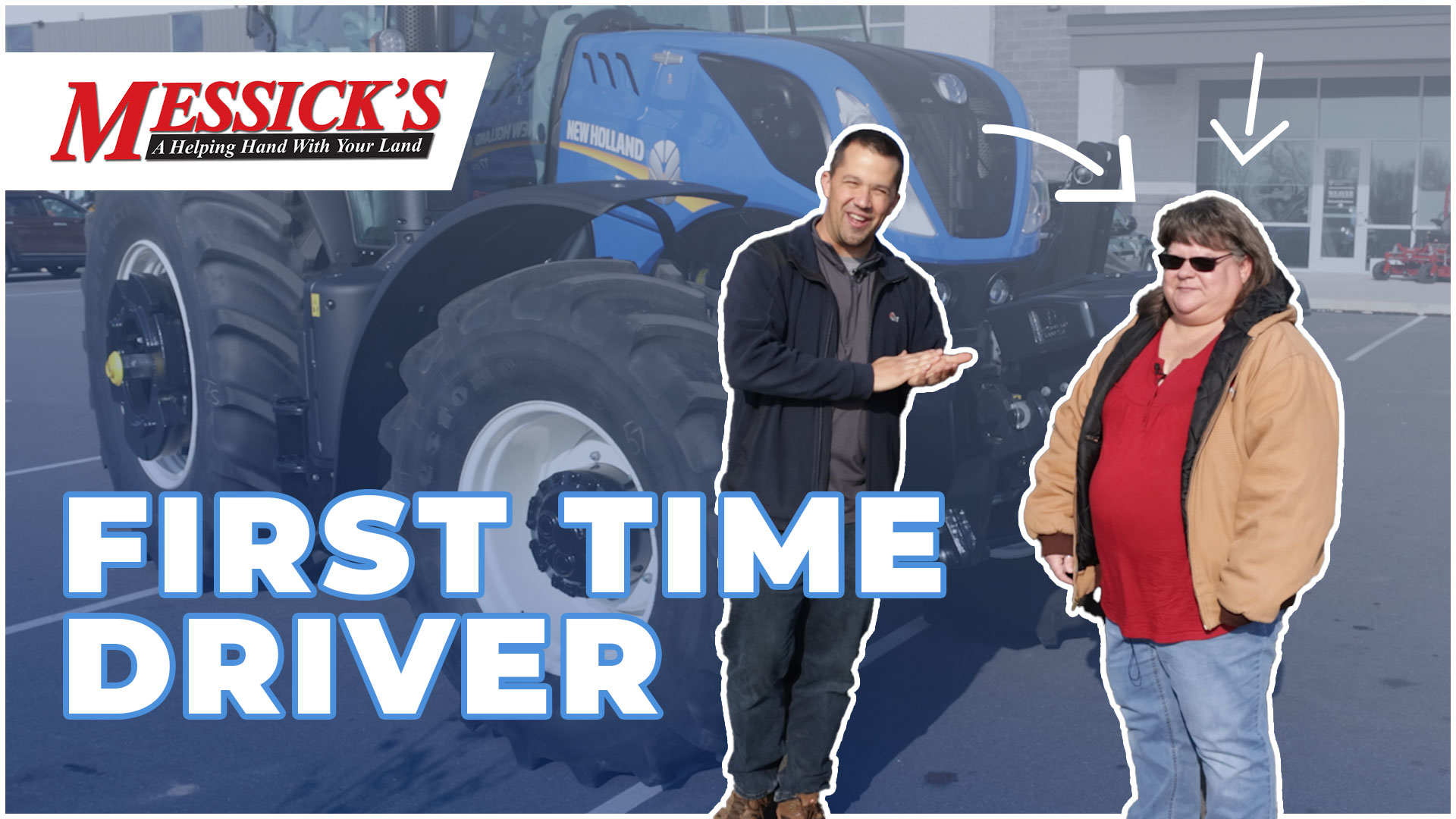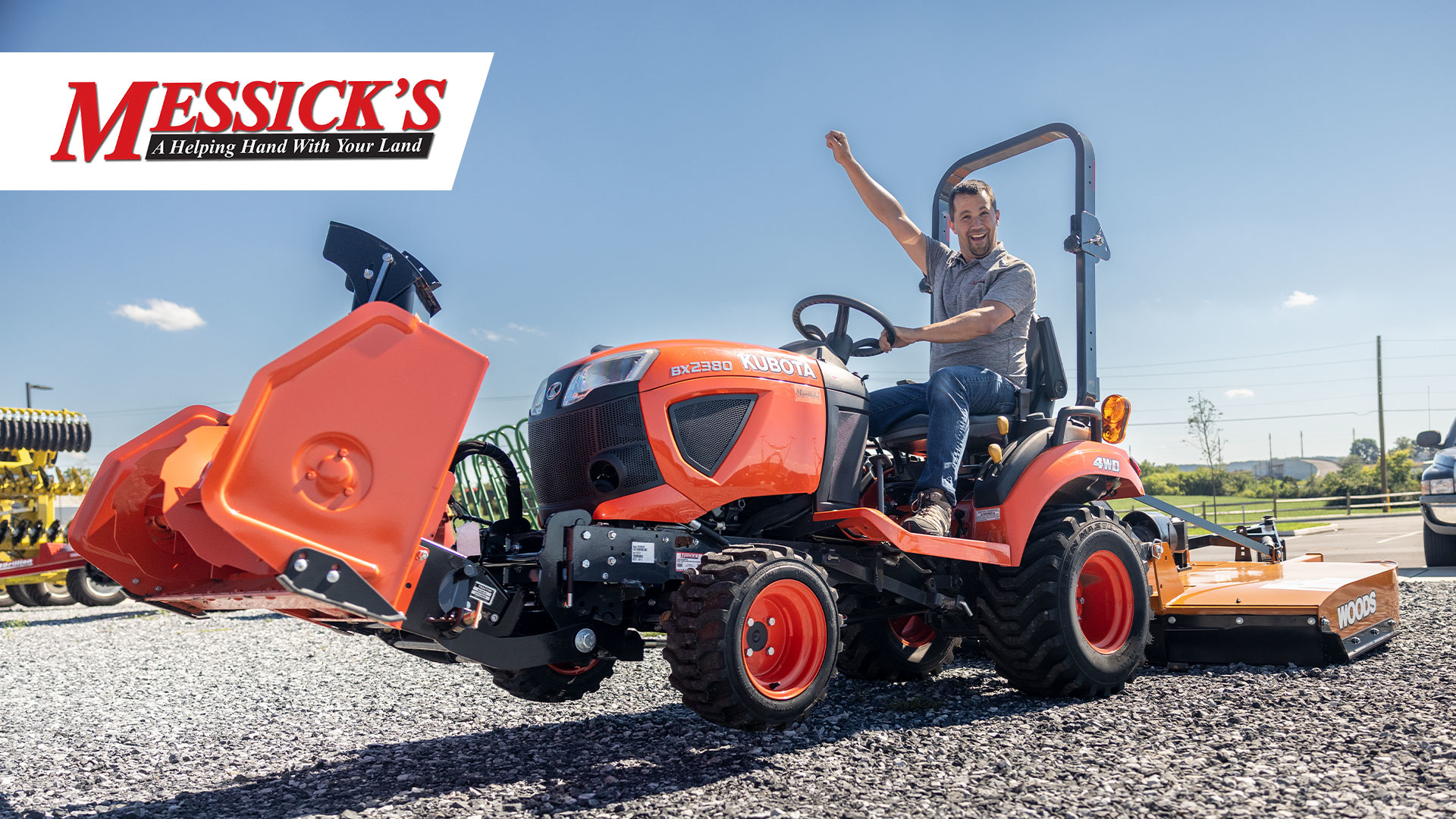
Neil from Messick's here to cover season two of Clarkson's Farm. Clarkson's Farm is a television show that streams on Amazon. Now, we're normally a channel here that talks about machinery, construction equipment, compact tractors. Today, we're going to be talking about a TV show, an important TV show actually, one that reflects this industry and really reaches a lot of people. Today, we're going to talk a little bit about Clarkson's Farm.
Who is Jeremy Clarkson and what is he doing farming? If you've not become familiar with this person yet, Jeremy is a presenter from a television show known as Top Gear or what later became The Grand Tour. He's a very well-known motoring journalist.
About a year and a half ago, he came out with Clarkson's Farm 1. In his retirement here, he started farming about a thousand-acre farm in England. Now, this is season two of this show. If you're just starting here at the beginning, it is best to go back and start at the beginning. Watch season one before you start season two because there are a lot of characters, people, and scenarios that are explained in that first season that you need to know in order to enjoy the second.
Now, if you don't know Jeremy as an individual, understanding his character, his public persona is important to understanding exactly the scenarios that he gets himself into in the course of the show. For the last 20-odd years that he's been on television, he's become known as a motoring journalist, but also a bit of a comedian at the same time. I really like his particular brand of humor. It can be a little edgy and off-color at times, but his speed and power approach to things, his more or less simple approach and eagerness to get into things, I think, puts him into a lot of really interesting situations.
While he does a lot of, call it, scripted reality, I find that in the Clarkson's Farm series, there's probably more true-to-life moments than a lot of the other television that he's done in the past and he is probably a better character in this series because of it. I've set the show up for you at this point. Moving forward, we're going to start talking about plot points and equipment. Cue up the spoilers. As an equipment dealer, the very first thing that I watch for in this show is machinery. That's the bits that I like to pick out.
This season isn't about the equipment quite as much as what the first one was. When the farm was first being established and they were buying equipment at auction and that stuff to be able to go out and have the tools that they needed to start a farm, they were talking a whole lot more about the equipment than what they do here in season two. That doesn't mean that it's not still there. Jeremy's typical 250-odd horsepower oversized Lamborghini tractor is still there, along with a real mishmash of implements.
You do see a lot more implements in this show. It's clear that they've added a lot more pieces to their fleet of machinery as they're doing more tasks here on the farm, but you don't see things in great detail to be able to nitpick through his configurations a whole lot. There is one exception to that, though, where they went into great depth on a piece of speed tillage here that they had on the tractor. Many people, myself included, pointed out that his whole fleet of implements is way too small for this enormous tractor that he pulls them with.
In good old Jeremy style, he took that one extreme and went from say an 8-foot or 10-foot implement up to about a 30-foot piece of speed tillage that, for some reason, they chose to mount on the three-point hitch.
Now, this looks like it was probably a bit of a setup to me because no sane person would ever try to put a three-point mounted implement that's this heavy on this tractor. You simply wouldn't do it. These are normally drawbar-pulled implements, but sure enough, they did. I thought it was interesting to see that reference back to maybe some of the critics that they obviously are paying attention to the things that are said on the internet about some of his farming practices.
Now, as more equipment has been added to this fleet, there are more pieces now on this show that us, American viewers, may recognize.
The first season included a lot of brands that are strictly European that we don't see here a whole lot. This season two includes Kaleb buying a New Holland tractor and many of the contractors working on their farm using some Kubota excavators. I was able to pick out a lot more model numbers of machinery that I recognized. The first season of this show received a lot of acclaim and several awards for its accurate depiction of the difficulty of farming.
A lot of time is spent on the financial investment that's involved, a lot of the risks that are out there as far as weather and crop prices and subsidies. Season two does include some of that. It is definitely front-loaded on the front half of the season. Now, most of this is in terms of the subsidies as Britain is going through the Brexit process, and a lot of the subsidies that they had used in the past are part of the EU. There is a lot of unknowns here for the farm community and how those subsidies are going to be rolled out to them in the future.
We see subsidies here in the US but not quite in the same way. It's not something that every farmer in this country relies upon, maybe, in quite the same way that it seems to have been happening in Britain, but it is a factor. It's something that drives certain equipment purchases or reclamation practices and stuff that we do here in the US. There is government money out there and it is an unknown that drives business.
Probably the biggest thing that I resonated with was the struggle that they were having with tuberculosis in their cows. There was a strain of tuberculosis running around through their area that was being spread by wild animals. There was a lot of concern on the show of that tuberculosis spreading to their cows and wiping out their herd.
That really rang true for me. Here in Lancaster County, Pennsylvania, avian influenza for us has been a huge problem. Within only a couple of miles of our stores here, you could find millions of chickens that had to be depopulated in the last year. Those risks of disease are very real risks that are felt by a lot of the farming community. The show did a very good job of portraying that.
One thing that I enjoyed a lot in season one of Clarkson's Farm was seeing his response to his animals for the connection that he had to his sheep and his goats and all this stuff that was on the farm for the very first time. You're talking a person here who never had this connection to rural agriculture. It was cool to see him appreciate these parts of a more rural life and that connection that people develop with their animals over time. There was some of this in season two, but to me, it feels a little bit more scripted, particularly in regards to a cow named Pepper. They followed the process of this cow and trying to get her pregnant to have babies and were unsuccessful in that ultimately. It comes off feeling a little bit more scripted and a little less genuine than what it did the first time around.
The second half of Clarkson's Farm focuses really heavily on the opening of a farm-to-table restaurant on the farm. This is the point of the show that lost me a little bit. Nearly four episodes are spent mostly focused on a lot of the regulatory hurdles, the planning issues, the pushback from the community that existed for this farm-to-table restaurant.
A lot of these, it's hard to read through a little bit how legitimate some of these claims had been. Obviously, you can guess there's thousands of people trying to come out and visit this place. I'm sure it caused all kinds of local problems that caused issues for local planning. Giving legitimacy to those concerns probably wouldn't have created the best storyline for the show.
Nonetheless, a lot of the time is spent from Jeremy's perspective on the issues that this caused in being able to open the farms.
There is a lot of good farm value here in terms of diversification. Finding that higher value for your product that you can get from a farm-to-table type arrangement. There's some good ag-industry stuff here, but at the same time, it didn't ring the same way with me. It's where in Clarkson's Farms, season one, you're going through it and feeling like the general populace is being introduced to all of these agricultural struggles and concepts for the very first time, while they're there in season two, I don't know, it just didn't hit me in quite the same way. Maybe because it was expected this time around, you knew what you were going to get.
It could be a combination of that, could be a combination of being too scripted or too forced. I don't know. It's a great story. I'm not telling you not to watch it. I just don't feel the same vibe watching it this time around to say that this is such an important thing for the ag community. I'm a fan of this show. You see me sporting my Diddly Squat Farm Speed And Power t-shirt pretty frequently, but personally, season two of this doesn't connect with me in quite the same way that season one did. Maybe that's not-- Just because this is not new now. Some of the value in this show is a little expected at this point. The plot points here feel a little bit more scripted.
I find it to be good entertainment, but maybe not quite the important piece for the ag industry that the first one was. Definitely worth watching, good entertainment. I'll throw a warning out here. The language is pretty crass and some of the topics, push it on the sexual boundaries every once in a while. If you're watching things with your kids. Check it out. If you like a little bit of good ag-oriented entertainment, Clarkson's Farm is worth a watch. You'll find it on Amazon Prime. If you're shopping for a piece of equipment and we can help, or if you have parts or service needs for a machine you've already got, give us a call at Messick's. We're available at 802-223-373 or online Messicks.com.

It is exciting to imagine what can be accomplished with your tractor, but why does it struggle when you need it to climb a hill?

Big tractors can be intimidating, but some models are surprisingly easy to drive. We invite Shelby, one of our receptionists, to see how she does behind the wheel of a New Holland T7.270 with Auto Command (CVT Transmission).

Sometimes, the question of will this implement work with my machine is not as simple as it sounds. Neil guides us through all the factors that contribute to whether or not an implement will work with your machine.